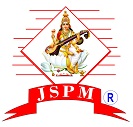IQAC Functions
About IQAC
As per National Assessment and Accreditation Council (NAAC) guidelines every accredited institution should establish an Internal Quality Assurance Cell (IQAC) as a post-accreditation quality sustenance measure. Since quality enhancement is a continuous process, the IQAC becomes a part of the institution's system and works towards realization of the goals of quality enhancement and sustenance. The prime task of the IQAC is to develop a system for conscious, consistent and catalytic improvement in the overall performance of institutions.
The primary aim of the IQAC is to develop the system for concise, consistent and catalytic action to improve the academic and administrative performance of the institution.
Internal Quality Assurance Cell (IQAC-RSCOE)
Internal Quality Assurance Cell (IQAC)
| Sr. No | Name | Designation |
|---|---|---|
| 1 | Dr. Santosh Bhosle, Director RSCOE | Chairman |
| 2 | Prof. S. L. Bhilare, Director, JSPM | Member (Management) |
| 3 | Dr. A. M. Badadhe, Dy. Director, Dean Academics | Member (Administrative) |
| 4 | Dr. N. S. Mujumdar, Sr. Professor | Teacher Member |
| 5 | Dr. Rachayya R. Arakerimath, Dean (Quality Assurance) | Member Secretary & IQAC, Coordinator |
| 6 | Dr. S. G. Kandhalkar, Dean (Admin) | Teacher Member |
| 7 | Dr. Sunil R Dhore | Member-Academics[external] |
| 8 | Dr. B. D. Jadhav, COE (Examinations) | Teacher Member |
| 9 | Dr. Anand Bewoor | Member-Academics[external] |
| 10 | Dr. J A Hole, Dean (Research) | Teacher Member |
| 11 | Dr. R A Dubal, Dean (Students Affairs) | Teacher Member |
| 12 | Dr. A. M. Badadhe, HOD (Automation & Robotics) | Teacher Member |
| 13 | Dr. Santosh Waghaj, HOD (E&TC) | Teacher Member |
| 14 | Dr. S N Khan, HOD (Mechanical) | Teacher Member |
| 15 | Dr. Nihar Ranjan, HOD (IT) | Teacher Member |
| 16 | Dr. Kavita Moholkar, HOD (CSBS) | Teacher Member |
| 17 | Dr. S.M.Yadav, HOD (Engg. Science) | Teacher Member |
| 18 | Dr. S. L. Chavan, HOD (Electrical) | Teacher Member |
| 19 | Dr. J R Dhanuskar, HOD (Civil) | Teacher Member |
| 20 | Dr. A.A. Chaudhari, HOD (MBA) | Teacher Member |
| 21 | Prof. R. A. Dullo, HOD (MCA) | Teacher Member |
| 22 | Shri Rajendra Bhise, Principal Consultant ATOS GITSS Pvt.Ltd. Pune | Member (Local Society) |
| 23 | Mr. Kiran Attarde Gen. Manager, Konecranes Ltd. | Member (Industry) |
| 24 | Mr. Vijay Upadhyay | Member (Alumni) |
| 25 | Miss. Shrerryl Thopil | Member (Student) |
Strategies
IQAC shall evolve mechanisms and procedures for:
- Ensuring timely, efficient and progressive performance of academic, administrative and financial tasks.
- The relevance and quality of academic and research programmes.
- Equitable access to and affordability of academic programmes for various sections of society
- Optimization and integration of modern methods of teaching and learning.
- The credibility of evaluation procedures.
- Ensuring the adequacy, maintenance and functioning of the support structure and services.
- Research sharing and networking with other institutions in India and abroad.
Functions
Some of the functions of the IQAC are:
- Development and application of quality benchmarks/parameters for various academic and administrative activities of the institution.
- Facilitating the creation of a learner-centric environment conducive to quality education and faculty maturation to adopt the required knowledge and technology for participatory teaching and learning process.
- Arrangement for feedback response from students, parents and other stakeholders on quality-related institutional processes.
- Dissemination of information on various quality parameters of higher education.
- Organization of inter and intra institutional workshops, seminars on quality related themes and promotion of quality circles.
- Documentation of the various programmes/activities leading to quality improvement.
- Acting as a nodal agency of the Institution for coordinating quality-related activities, including adoption and dissemination of best practices.
- Development and maintenance of institutional database through MIS for the purpose of maintaining/enhancing the institutional quality.
- Development of Quality Culture in the institution.
- Preparation of the Annual Quality Assurance Report (AQAR) as per guidelines and parameters of NAAC, to be submitted to NAAC.
Benefits
IQAC will facilitate/contribute:
- Ensure heightened level of clarity and focus in institutional functioning towards quality enhancement.
- Ensure internalization of the quality culture.
- Ensure enhancement and coordination among various activities of the institution and institutionalize all good practices.
- Provide a sound basis for decision-making to improve institutional functioning.
- Act as a dynamic system for quality changes in HEIs.
- Build an organized methodology of documentation and internal communication.

